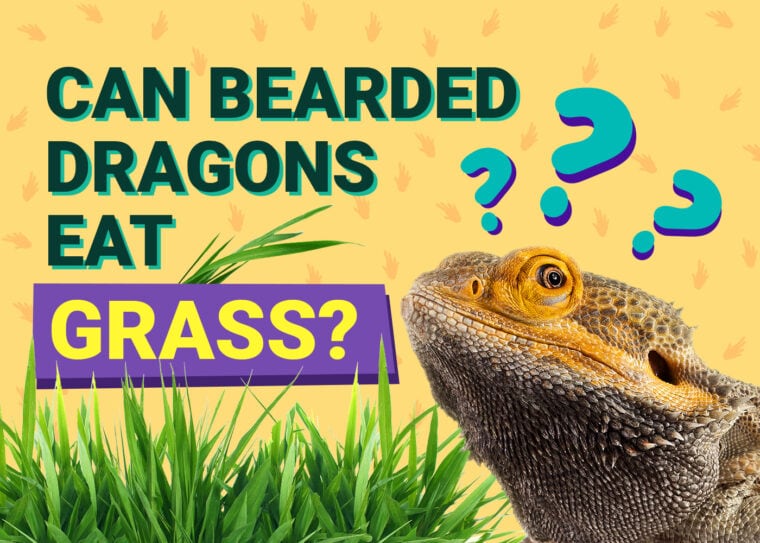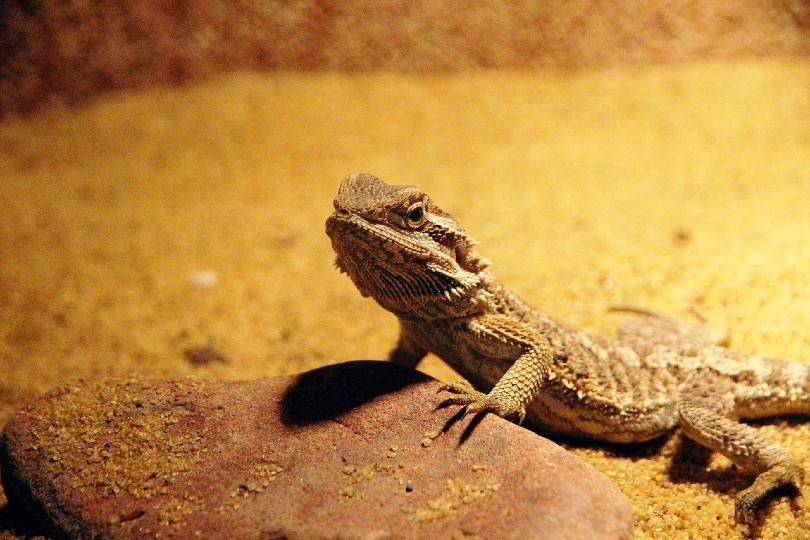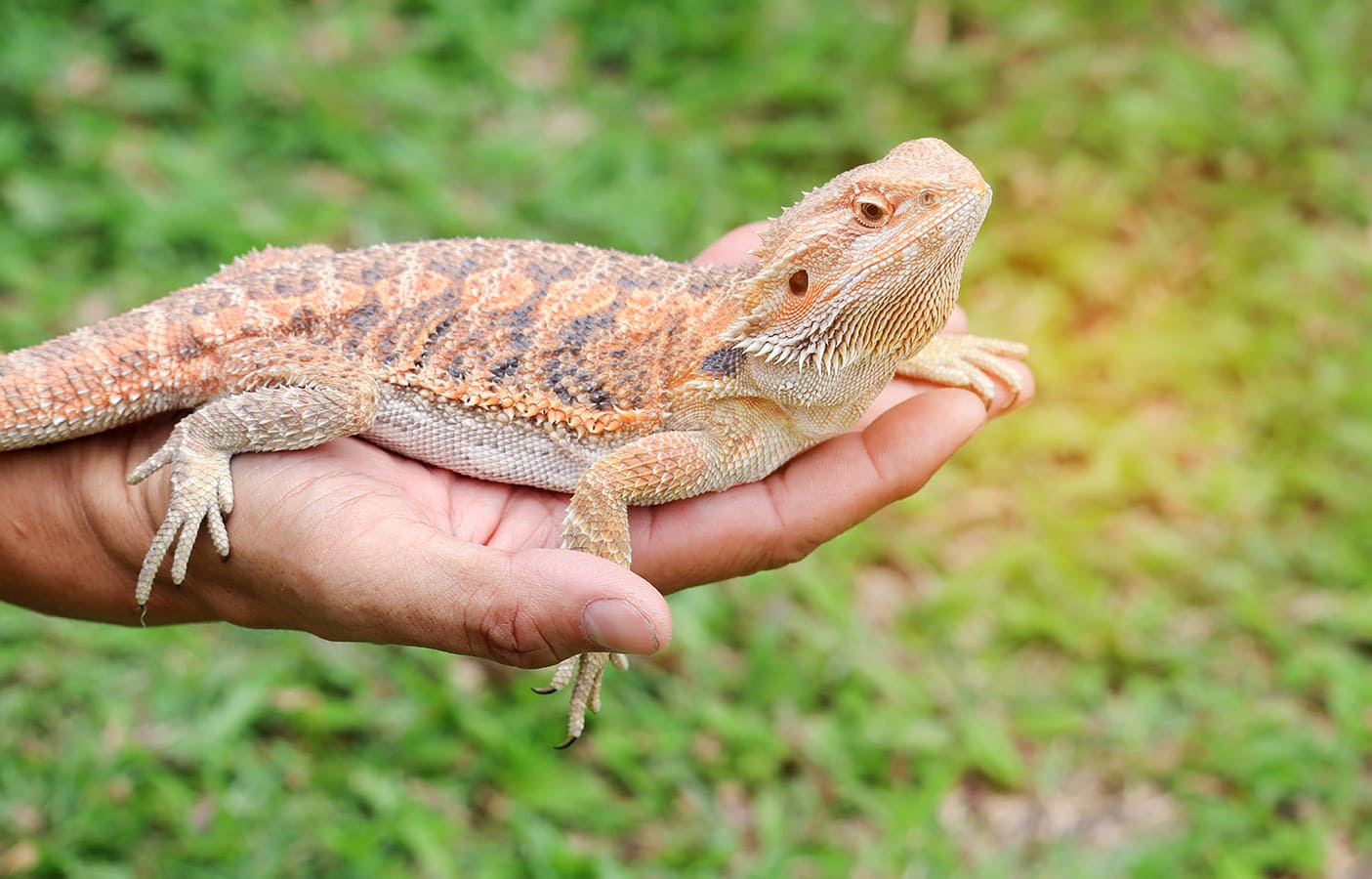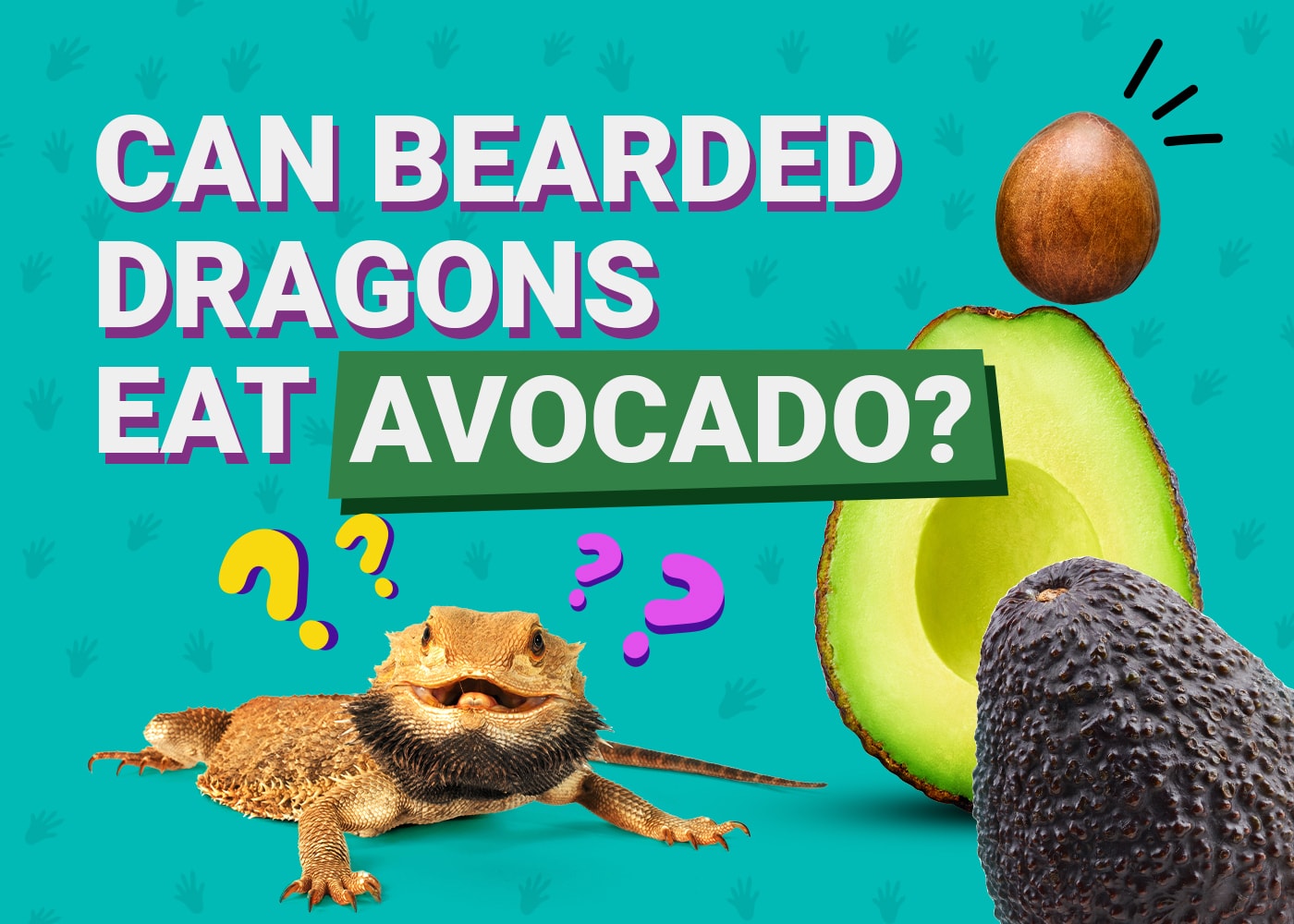
Bearded dragons are popular reptilian pets with unique nutritional needs. As juveniles, their diet is more biased towards animal-based proteins. However, as adults, they’re better off with a diet that is more biased towards plant matter, with animal-based proteins forming a rather small amount of their diet.
If you’ve ever taken your pet outdoors for some fresh air, you might have noticed them showing an interest in grass. They may even nibble at some shoots of grass from time to time. You might wonder if it’s okay for your beardie to eat grass. Although bearded dragons can eat grass, it shouldn’t be fed willingly to them since it offers no meaningful nutrition and is notoriously difficult to digest.
Let’s take a closer look at why you shouldn’t offer your beardie grass.
Is It Okay for My Bearded Dragon to Eat Grass?
So, can bearded dragons eat grass? To answer the question bluntly: your bearded dragon is not going to die from eating grass, but it does not add much nutritional value, and it is difficult for the bearded dragon to digest. In other words, it’s okay if your bearded dragon eats a little bit of grass during outdoor playtime, but you shouldn’t feed your beardie grass.
If you take your bearded dragon into your garden for playtime, it will likely try to munch on the grass. It is okay in small amounts during playtime. However, do not feed your bearded dragon grass for sustenance or nutritional value.
There are several reasons for why grass isn’t good for nutritional purposes. For starters, grass doesn’t have a lot of nutritional value, meaning that it is not nutritionally meaningful for your pet. The bigger issue is that bearded dragons cannot digest grass easily. They don’t have the digestive enzymes nor the digestive system that many farm animals that consume grass for nutrition possess.
Additionally, grass is often treated with pesticides and chemicals. This can be very dangerous for a curious bearded dragon who nibbles on some grass during playtime. At other times, grass might be contaminated with poison intended for pests (such as rat poison or snail bait); these are a health hazard for bearded dragons.
Bearded Dragons’ Digestive Tract
We have said a couple of times that grass is difficult for bearded dragons to digest. Let’s take a closer look at this fact because it is very important in aiding our discussion about beardies eating grass. Most animals that eat grass regularly have a digestive system specifically designed for it.
Animals that can utilize grass for nutrition are known as ruminants. These animals possess a four chamber foregut: the rumen, reticulum, omasum, and abomasum. These chambers allows them to break down grass into smaller nutritional compounds which they can then derive nutrition from.
Bearded dragons, and humans as well, do not have the appropriate digestive tracts to break down and use grass for nutrients. This fact makes grass incredibly difficult to consume for a variety of animals, bearded dragons included.
In the wild, bearded dragons might eat grass when they’re hard-pressed for food, but they will not get much nutritional value from it. We discuss this issue more in the next section. It’s just important to remember that bearded dragon digestive tracts are not designed for grass, making it incredibly difficult to digest it all, let alone gain any nutrients from.

Do Bearded Dragons Eat Grass in the Wild?
Wild bearded dragons are highly adaptable, opportunistic predators. During periods of time where prey is abundant, they will actively hunt insects and other arthropods. They supplement their diet with vegetation as needed. In times where prey are scarce, they will eat more vegetation to sustain themselves. They will eat grass if they need to, but it certainly isn’t their most sought-after meal since it does not taste good, is difficult to digest, and does not offer much nutritional value.
It’s also crucial to mention that the grass in your yard is nothing like the grass they eat in the wild. The word “grass” describes a whole variety of plants. Since bearded dragons live in dry environments, the grass in their natural habitat tends to be really dry and unattractive, making them suitable for someone’s yard.
Not to mention, grass used in yards has been specifically bred for attractiveness, causing the grass to be void of many minerals and vitamins. So, any grass from your yard is likely to have absolutely no nutritional value. On the other hand, wild grass may offer some nutritional value, depending on the mineral composition of the sand it grows in.
We mention these facts because even in the wild, it is unlikely for a bearded dragon to eat the type of grass that is in your backyard. This is simply because bearded dragons do not live in habitats with that type of grass.
What Is a Bearded Dragon’s Favorite Food?
Instead of wasting your bearded dragon’s calories on grass and other foods not suitable for their digestive systems, feed them foods that nourish their body and tickle their taste buds. Bearded dragons are omnivores, meaning they eat both insects and vegetation. Their diet is very varied, and the amount of animal matter and plant matter they require depends on their age; younger bearded dragons and juveniles require more animal-based resources, whereas adults require more plant-based foods.
The bearded dragon’s favorite animal food is insects. Crickets, cockroaches, grasshoppers, and kingworms are their favorites. Most people feed their bearded dragons crickets simply because beardies love them, and they aren’t too stomach-churning to feed to the beardie.

You should be feeding your bearded dragon greens and vegetables as well. Kale, dandelion greens, and mustard greens are some of their favorites. Bearded dragons can also eat fruits. They especially love figs, apples, and melons. Do not feed your bearded dragon too many fruits, however. Fruits should be considered a treat.
Here is a list of different foods that bearded dragons love:
Though these foods are safe for bearded dragons to consume, you should always consult with your veterinarian to come up with a nutritional plan that suits your pet’s individual needs.
Final Thoughts
Even though grass is not poisonous to bearded dragons, you should avoid feeding grass to your beardie because it is difficult to digest and does not offer any nutritional value. If your bearded dragon takes a couple of munches on the grass while playing outside, that is fine. Just don’t let them play in grass exposed to pesticides or chemicals.
Instead of feeding your bearded dragon grass, opt for insects, fruits, and vegetables that taste good, don’t hurt their digestive tract, and offer them nutritional benefits. Crickets and cockroaches are definitely their favorites, as stomach-churning as that may sound!
- You may want to read this next: Fancy Bearded Dragon
Featured Image Credit: Pixabay









